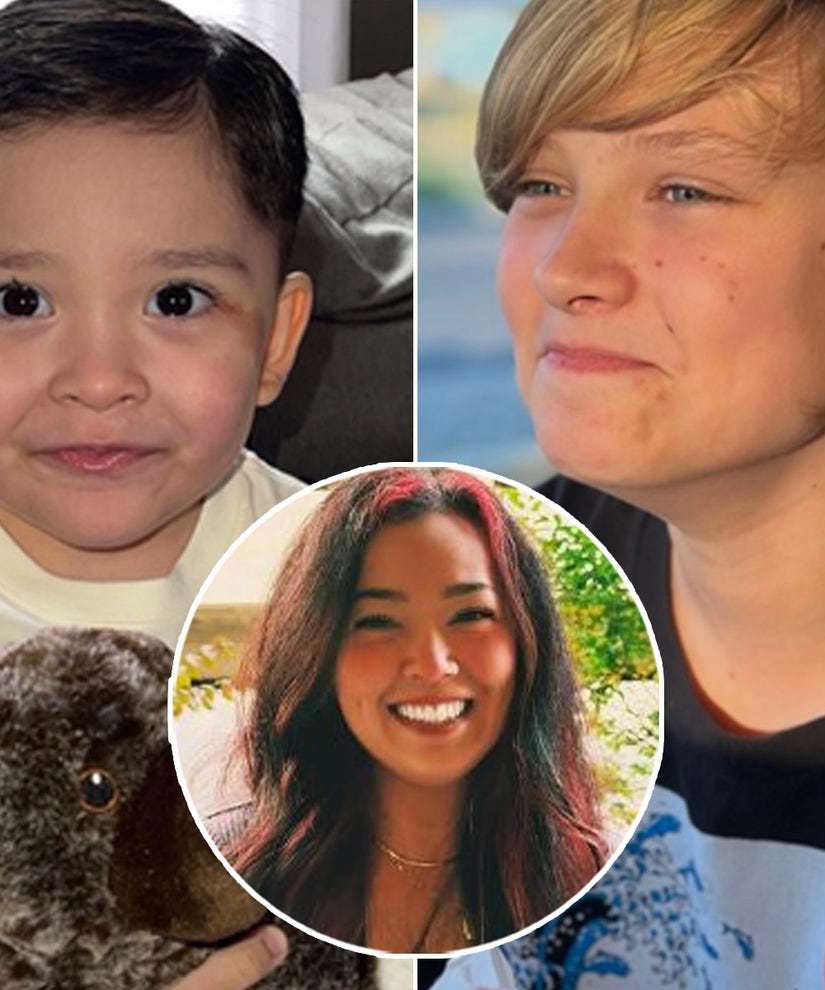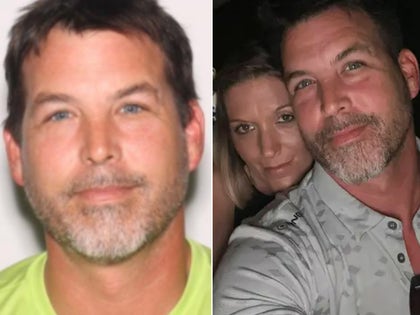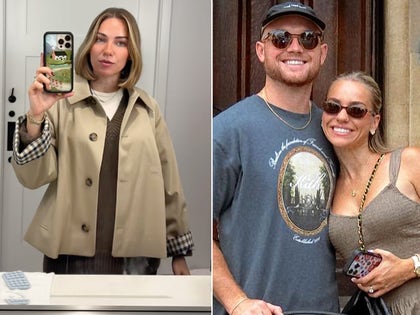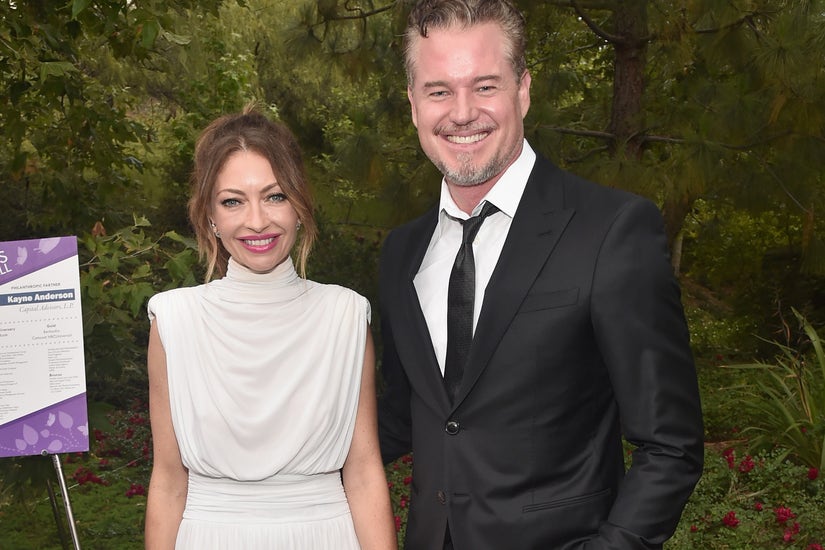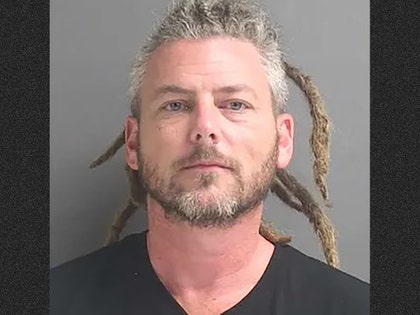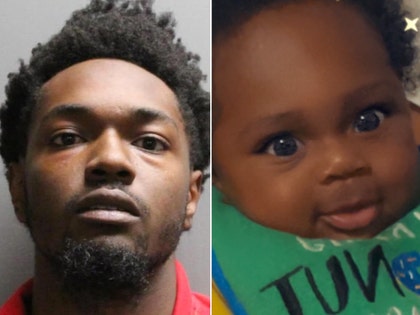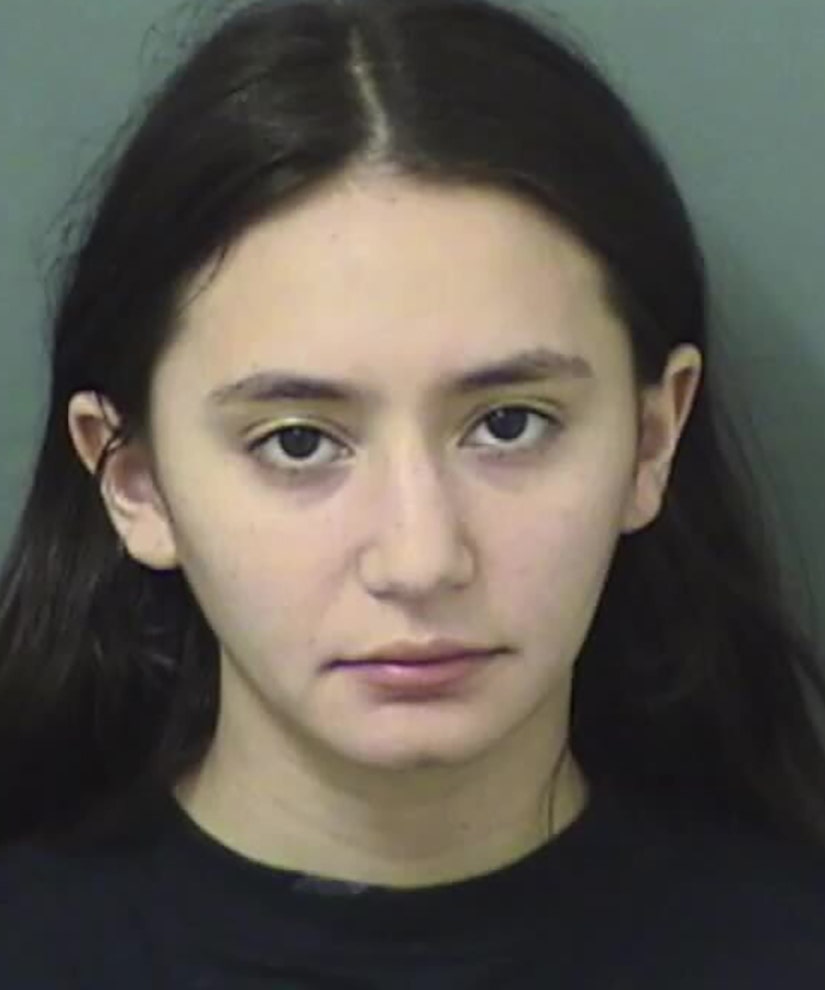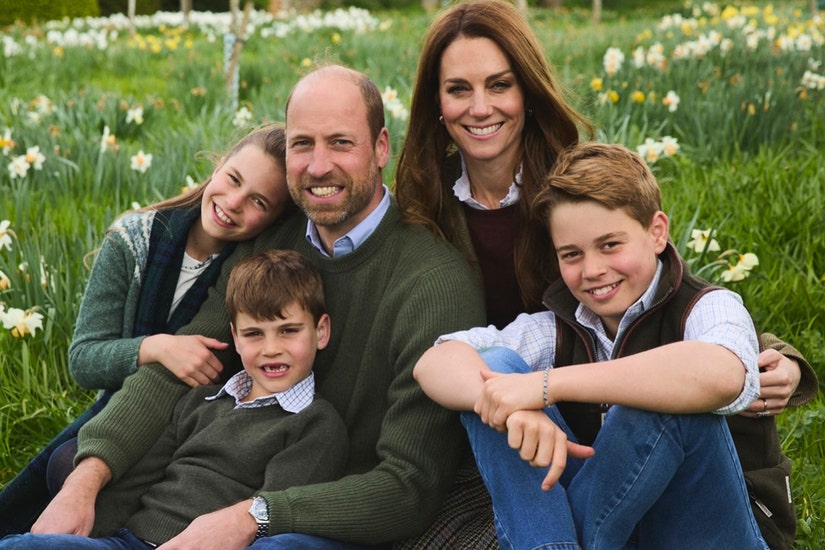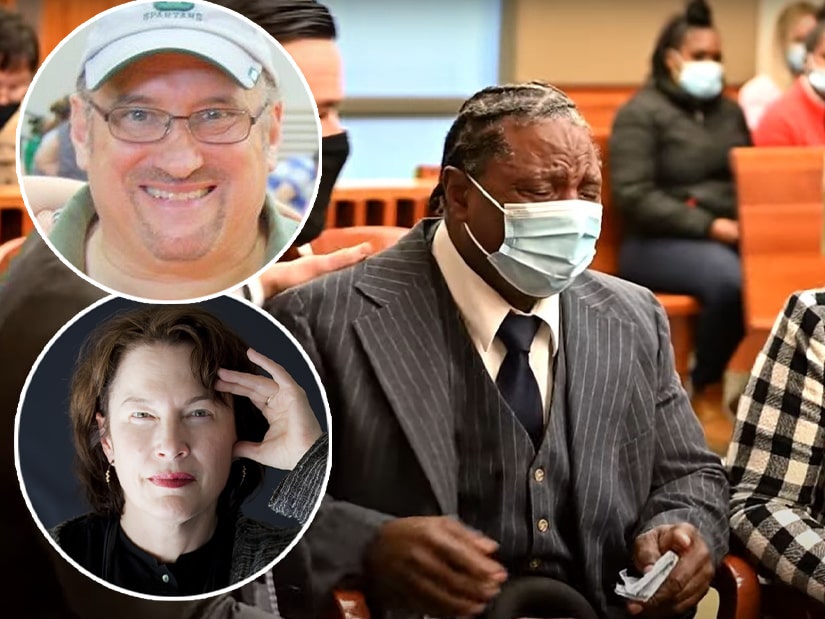
While he did not blame Sebold as an 18-year-old rape victim, he did have questions for her as a 39-year-old author.
Update: December 6 2021, 10:20 AM PST
The producer who exposed the false rape conviction of Anthony Broadwater has revealed who he believes is to blame.
In an article for The Guardian, Timothy Mucciante explained why he pulled out of the film adaptation of "Lucky", and why he began digging into the decades-old case that would ultimately see the man who would have been the villain, completely exonerated.
In his piece, Mucciante blames the American justice system, the "unethical and unscrupulous" assistant district attorney who prosecuted, and the media for failing to see Broadwater's innocence "hiding in plain sight" for years.
While he did not blame Sebold as an 18-year-old rape victim, he did have questions for her as a 39-year-old author.
"When I first reviewed the book as a part of my preparations for the film, less than a year ago, I realised there were serious questions regarding the guilt of the man Sebold named in the book as Gregory Madison, the pseudonym she gave Anthony Broadwater," Mucciante wrote.
"On my first reading of the book, the portion regarding Sebold's attempted identification of her assailant at a police lineup disturbed me. Broadwater was suspect number four in the police lineup, and Sebold selected suspect number five as her attacker."
Mucciante points out that in her book, Sebold admits: "I placed my X in the number-five box. I had marked the wrong one," later claiming that "Number four and five looked like identical twins."
Mucciante claims that this alone should have been the end of the case against Broadwater; however the DA pressed on regardless, resulting in the 16-year prison sentence.
"This miscarriage of justice seemed obvious, and I pointed it out to my production team colleagues," Mucciante wrote. "I was assured that the publisher had fact-checked and vetted the book, so I should have confidence in the source material."
He said further red flags were raised when the director of the film, Karen Moncrieff, intended changing the race of the attacker from Black to white to "dispel the racial stereotype of a black man raping a white woman."
"... but as the actual perpetrator had been African-American, this did not make sense to me," Mucciante said. "Perhaps she had misgivings herself about the case, and wanted to make the film version as removed as possible from the book, to 'fictionalise' it, as it were."
It was at this point Mucciante pulled out as executive producer, and refused to continue funding, instead hiring a private investigator to dig further.
"It quickly became clear that he was innocent of the crime for which he was accused and had spent many years in prison," he said.
Since then, Mucciante said he has been asked his opinion many times: Is Alice Sebold to blame, the American justice system, or both?
"I do not believe that Sebold, as an 18-year-old rape victim, bears any blame. She was doing the best she could, being guided by an unethical and unscrupulous assistant district attorney," Mucciante wrote.
"But I do have questions about the 39-year-old Sebold who wrote Lucky. Before she wrote the book, she had reviewed the entire district attorney's file, including the photo of the police lineup."
"Would she not have realized, in retrospect, that suspects four and five were not similar in appearance? Wouldn't she have had the opportunity to speak up at that time, to address her error, and vindicate her supposed attacker?"
He said that without question, what Sebold endured on the night of 8 May 1981 was awful, unacceptable and tragic. "But isn't it equally tragic that she could have known, in the mid-1990s, that he was almost certainly not her attacker and could have tried to free him?"
Mucciante accuses the American justice system — including every law enforcement and legal professional involved in that case — of failing both Sebold and Broadwater, claiming the assistant DA should never have allowed a case in which the victim could not identify the suspect to go to trial.
He also lashed out at the media, who interviewed Sebold "countless times" in the wake of the success of "The Lovely Bones", for never once questioning the obvious discrepancies.
"Broadwater's innocence had been hiding in plain sight," Mucciante wrote. "Any one of the many journalists interviewing Sebold could have pushed back on what was, at face value, an absurd story. A rape victim identifies the wrong suspect in a police lineup and the case goes to trial and the man goes to prison."
"How does not one reporter stop and say, 'Wait a minute – this doesn't sound right?'"
In his piece, Mucciante points out he knows a taste of what Broadwater went through, himself being a convicted felon who served time for bank fraud, thus disbarring him from his original profession: law.
Timothy Mucciante's Red Badge Films is now producing a documentary about the Anthony Broadwater case, titled "Unlucky."
TooFab has reached out to Karen Moncrieff's reps for comment.
Update: December 1 2021, 7:50 AM PST
Anthony Broadwater has accepted Alice Sebold's apology.
"It comes sincerely from her heart. She knowingly admits what happened. I accept her apology," he told the Syracuse Post-Standard — before bursting into tears.
Sebold's reps reached out to Broadwater with the apology before she publicly made it; Broadwater said it took a while for it to sink in, but after thinking it over and talking about it with his wife — who also cried — the emotional weight finally overcame him.
"It was a big relief," he said. "It must have taken a lot of courage to come to terms and make that apology."
In a statement, Broadwater added: "It's still painful to me because I was wrongfully convicted, but this will help me in my process to come to peace with what happened."
On Tuesday, Sebold's publisher Scribner announced it was ceasing distribution of "Lucky", and was working with the author to consider how it might be revised. The book has already sold more than one million copies.
Update: November 30 2021, 12:30 Pm PST
Alice Sebold issued an apology on Tuesday to Anthony Broadwater, who was exonerated last week in the author's 1981 rape case. Broadwater was falsely convicted of the crime in 1982 and served 16 years behind bars. The conviction was finally overturned on November 22 after prosecutors found severe flaws both in his arrest and trial following a reexamination of the case four decades later.
Broadwater had last week said all he wanted from Sebold was an apology: "I just hope and pray that maybe Ms. Sebold will come forward and say, 'Hey, I made a grave mistake,' and give me an apology. I sympathize with her, but she was wrong."
Sebold released a statement to the Associated Press Tuesday, which was later published on Medium.
Read her statement below:
"First, I want to say that I am truly sorry to Anthony Broadwater and I deeply regret what you have been through.
"I am sorry most of all for the fact that the life you could have led was unjustly robbed from you, and I know that no apology can change what happened to you and never will. Of the many things I wish for you, I hope most of all that you and your family will be granted the time and privacy to heal.
"40 years ago, as a traumatized 18-year-old rape victim, I chose to put my faith in the American legal system. My goal in 1982 was justice — not to perpetuate injustice. And certainly not to forever, and irreparably, alter a young man’s life by the very crime that had altered mine.
"I am grateful that Mr. Broadwater has finally been vindicated, but the fact remains that 40 years ago, he became another young Black man brutalized by our flawed legal system. I will forever be sorry for what was done to him.
"Today, American society is starting to acknowledge and address the systemic issues in our judicial system that too often means that justice for some comes at the expense of others. Unfortunately, this was not a debate, or a conversation, or even a whisper when I reported my rape in 1981.
"It has taken me these past eight days to comprehend how this could have happened. I will continue to struggle with the role that I unwittingly played within a system that sent an innocent man to jail. I will also grapple with the fact that my rapist will, in all likelihood, never be known, may have gone on to rape other women, and certainly will never serve the time in prison that Mr. Broadwater did.
"Throughout my life, I have always tried to act with integrity and to speak from a place of honesty. And so, I state here clearly that I will remain sorry for the rest of my life that while pursuing justice through the legal system, my own misfortune resulted in Mr. Broadwater’s unfair conviction for which he has served not only 16 years behind bars but in ways that further serve to wound and stigmatize, nearly a full life sentence."
original story below: November 24 2021
The man who was accused of raping "The Lovely Bones" author Alice Sebold 40 years ago has just had his conviction overturned.
Anthony Broadwater, who spent 16 years in prison for a crime he did not commit, was exonerated by a judge on Monday after serious flaws were highlighted in the 1982 prosecution, AP reported.
Sebold, 58, had detailed the rape in graphic detail in her 1999 memoir, "Lucky". The threads in the four decades-old case only started to unravel recently, when a producer working on a film adaptation said he noticed inconsistencies, and began digging.
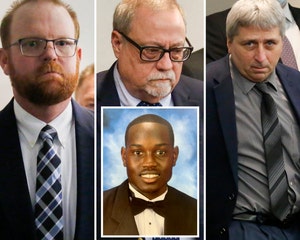 Getty
Getty
Hollywood Reacts As All 3 Suspects Are Found Guilty In Murder of Ahmaud Arbery
View StoryIn her book, Sebold describes the night she, then a 19-year-old first year student at Syracuse University, was raped by a Black man in a tunnel in May of 1981. Nobody was arrested at the time; but months later, she insisted she passed her attacker — whom she gave the pseudonym Gregory Madison — in the street.
"He was smiling as he approached. He recognized me. It was a stroll in the park to him; he had met an acquaintance on the street," she wrote. "'Hey, girl,' he said. 'Don't I know you from somewhere?'"
"I looked directly at him. Knew his face had been the face over me in the tunnel."
She immediately reported the encounter to police, who swept the area but could not find him. One officer claimed Broadwater had been in the area at the time, and he was brought in for a police line-up. But Sebold initially failed to pick him out.
She admits in her book that out of the five Black men presented, she picked a different man because "the expression in his eyes told me that if we were alone, if there were no wall between us, he would call me by name and then kill me."
She said it dawned on her moments later she had picked the wrong man because they looked "almost identical". She would later identify Broadwater in court.
Despite the initial misidentification, the prosecution's case would largely hinge on the police line-up, as well as testimony from a forensic chemist claiming microscopic hair analysis tied Broadwater to the crime scene. Per AP, that type of forensic analysis has since been deemed junk science by the Department of Justice, and is no longer relied upon in court.
Broadwater was found guilty and spent the next 16 years in prison, and placed on the sex offender's registry for life.
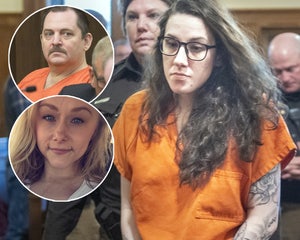 AP/Facebook
AP/Facebook
Woman Who Cut Tinder Date Into 14 Pieces Avoids Death Penalty
View StoryQuestions around the conviction were only raised when producer Tim Mucciante, who was working on an upcoming film adaptation of "Lucky" noticed inconsistencies between the script and the book.
"I started poking around and trying to figure out what really happened here," he told AP.
After dropping out of the project, he hired a private investigator, who in turn reached out to defense attorney David Hammond, who took on the case.
Speaking at Monday's court hearing, Onondaga County District Attorney William Fitzpatrick conceded: "I'm not going to sully this proceeding by saying, 'I'm sorry.' That doesn't cut it. This should never have happened."
"And I will say to Mr. Broadwater that I assure him that it will never happen again; that we will never let junk science into a courtroom in this county," he added, per The Post-Standard of Syracuse.
Admitting that he could not give Broadwater his 16 years back, Supreme Court Justice Gordon Cuffy overturned the conviction and declared him a free man. Broadwater immediately broke down in tears:
"When he spoke to me about the wrong that was done to me, I couldn't help but cry," an emotional Broadwater told the outlet. "The relief that a district attorney of that magnitude would side with me in this case, it's so profound, I don't know what to say."
Since his release from prison on New Year's Day 1999, Broadwater struggled to get employment because of the conviction, and was forced to largely remove himself from society.
He worked as a trash hauler and even took on a job as a night security guard so he would have an alibi if ever accused of another night crime.
He later met and married his eventual wife who believed him from the start, but refused to have children with her because of the stigma they would be born with.
"She wanted children... I wouldn't bring children into the world, because of this," he said through tears. "And now we're past the age where we can have children."
"Ruined his life, his life has been ruined over this," Hammond added, by his side. "Not just incarceration, but wrongfully being labeled a sex offender; these are things that he will never get back. An astonishingly simple case of injustice."
Broadwater would now like an apology from Sebold.
"I just hope and pray that maybe Ms. Sebold will come forward and say, 'Hey, I made a grave mistake,' and give me an apology," he said. "I sympathize with her, but she was wrong."
Three years after "Lucky", Sebold went on to publish "The Lovely Bones" — also about a rape — which in turn was made made into the multi-award winning 2009 film starring Saoirse Ronan, Mark Wahlberg, Rachel Weisz and Susan Sarandon, as well as Stanley Tucci, who was nominated for an Oscar for his performance.
Sebold has yet to comment on Broadwater's exoneration.
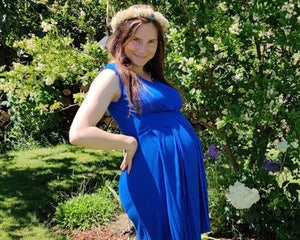 Instagram
Instagram













